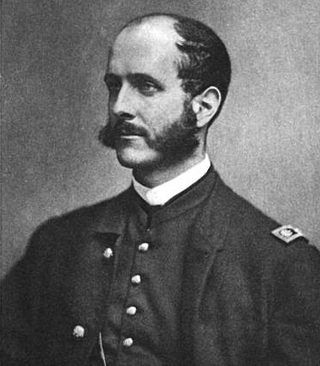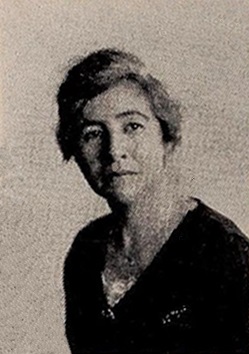
Albert Henry DeSalvo was an American rapist and suspected serial killer in Boston, who purportedly confessed to being the "Boston Strangler," the murderer of thirteen women in the Boston area from 1962 to 1964. In 1967, DeSalvo was imprisoned for life for committing a series of rapes. However, his murder confession has been disputed and debate continues as to which crimes he actually committed.
John Joseph "Jack" Geoghan was an American serial child rapist and Catholic priest assigned to parishes in the Archdiocese of Boston in Massachusetts. He was reassigned to several parish posts involving interaction with children, even after receiving treatment for pedophilia.
The Boston Strangler is the name given to the murderer of 13 women in Greater Boston during the early 1960s. The crimes were attributed to Albert DeSalvo based on his confession, on details revealed in court during a separate case, and DNA evidence linking him to the final victim.

James Joseph "Whitey" Bulger Jr. was an American organized crime boss who led the Winter Hill Gang in the Winter Hill neighborhood of Somerville, Massachusetts, a city directly northwest of Boston. On December 23, 1994, Bulger fled the Boston area and went into hiding after his former FBI handler, John Connolly, tipped him off about a pending RICO indictment against him. Bulger remained at large for sixteen years. After his 2011 arrest, federal prosecutors tried Bulger for nineteen murders based on grand jury testimony from Kevin Weeks and other former criminal associates.

A reform school was a penal institution, generally for teenagers mainly operating between 1830 and 1900. In the United Kingdom and its colonies reformatories commonly called reform schools were set up from 1854 onwards for youngsters who were convicted of a crime as an alternative to an adult prison. In parallel, "industrial schools" were set up for vagrants and children needing protection. Both were 'certified' by the government from 1857, and in 1932 the systems merged and both were 'approved' and became approved schools.

Mary Carpenter was an English educational and social reformer. The daughter of a Unitarian minister, she founded a ragged school and reformatories, bringing previously unavailable educational opportunities to poor children and young offenders in Bristol.
Elmira Correctional Facility, also known as "The Hill", is a maximum security state prison located in Chemung County, in the City of Elmira in the US state of New York. It is operated by the New York State Department of Corrections and Community Supervision. A supermax prison, Southport Correctional Facility, is located 2 miles (3.2 km) away from Elmira.

Theodore Lyman III was a natural scientist, military staff officer during the American Civil War, and United States Representative from Massachusetts.

The Lyman School for Boys was established by the Commonwealth of Massachusetts in c. 1884 and operated until c. 1971. The institution opened following the closure of the State Reform School for Boys in Westborough. The school was named for its principal benefactor, philanthropist Theodore Lyman, who served as mayor of Boston, Massachusetts from 1834 to 1836. The property is listed in the National Register of Historic Places.

Miriam Van Waters was an American prison reformer of the early to mid-20th century whose methods owed much to her upbringing as an Episcopalian involved in the Social Gospel movement. During her career as a penologist, which spanned most of the years from 1914 through 1957, she served as superintendent of three prisons: Frazier Detention Home for boys and girls in Portland, Oregon; Los Angeles County Juvenile Hall for girls, and the Massachusetts Correctional Institution – Framingham, then called the Massachusetts Reformatory for Women. While in California, Van Waters established an experimental reformatory school, El Retiro, for girls age 14 to 19. In each case, Van Waters developed programs that favored education, work, recreation, and a sense of community over unalloyed incarceration and punishment.

The Massachusetts Correctional Institution at Concord (MCI-Concord) is a medium security prison for men located in Concord, Massachusetts in the United States. Opened in 1878, it is the oldest running state prison for men in Massachusetts. This prison is under the jurisdiction of the Massachusetts Department of Correction. There are 570 inmates with a total capacity of 614 general population beds.
Maria Lopez is a Cuban-American former judge and a former television jurist on the syndicated court show, Judge Maria Lopez.

Abominable Firebug is a book about survival as one of America's throwaway children.
Anthony Veranis, also known as "Mickey White" and "Tony" was an associate of the Winter Hill Gang and a professional welterweight boxer.
Bridgewater State Hospital, located in southeastern Massachusetts, is a state facility housing the criminally insane and those whose sanity is being evaluated for the criminal justice system. It was established in 1855 as an almshouse. It was then used as a workhouse for inmates with short sentences who worked the surrounding farmland. It was later rebuilt in the 1880s and again in 1974. As of January 6, 2020 there were 217 inmates in general population beds. The facility was the subject of the 1967 documentary Titicut Follies. Bridgewater State Hospital falls under the jurisdiction of the Massachusetts Department of Correction but its day to day operations is managed by Wellpath, a contracted vendor.

Frederick J. Murray was an American football player, coach, and official and coach of baseball, basketball, and track and field. He served as the head football coach at Rhode Island State College, now the University of Rhode Island, in 1919, compiling a record of 0–7–1. Murray was also Rhode Island State's head basketball coach for one season in 1919–20, tallying a mark of 3–8.
The Massachusetts Department of Youth Services (DYS) is a state agency of Massachusetts. Its administrative office is headquartered in 600 Washington Street, Boston. The agency operates the state's juvenile justice services and facilities for incarcerated of children.
Jerome Gilbert Miller was an American social worker, academic and public sector corrections administrator, who was an authority on the reform of juvenile and adult corrections systems. He was a prominent advocate for alternatives to incarceration for offenders as well as for the de-institutionalization of individuals with developmental disabilities. His career involved university teaching, administration of juvenile justice services for three states, clinical work with offenders and advocacy for systemic change in public sector correctional services. Miller's work first drew national attention for his leadership in closing several juvenile reformatories in Massachusetts in the early 1970s. Miller went on to emerge as a prominent national advocate, administrator and educator working for systemic change in public sector corrections and disability service delivery systems. He was the co-founder of the National Center on Institutions and Alternatives.

Westborough is a town in Worcester County, Massachusetts, United States. The population was 21,567 at the 2020 Census, in over 7,000 households. Incorporated in 1717, the town is governed under the New England open town meeting system, headed by a five-member elected Board of Selectmen whose duties include licensing, appointing various administrative positions, and calling a town meeting of citizens annually or whenever the need arises.

The State Reform School for boys in Westborough Massachusetts was a state institution for the reformation of juvenile offenders from 1848 to 1884. Originally conceived the facility was built to house up to 300 young boys but by 1852 an addition was added to house an additional 300 inmates. By 1857, there were 614 inmates at the reform school.












